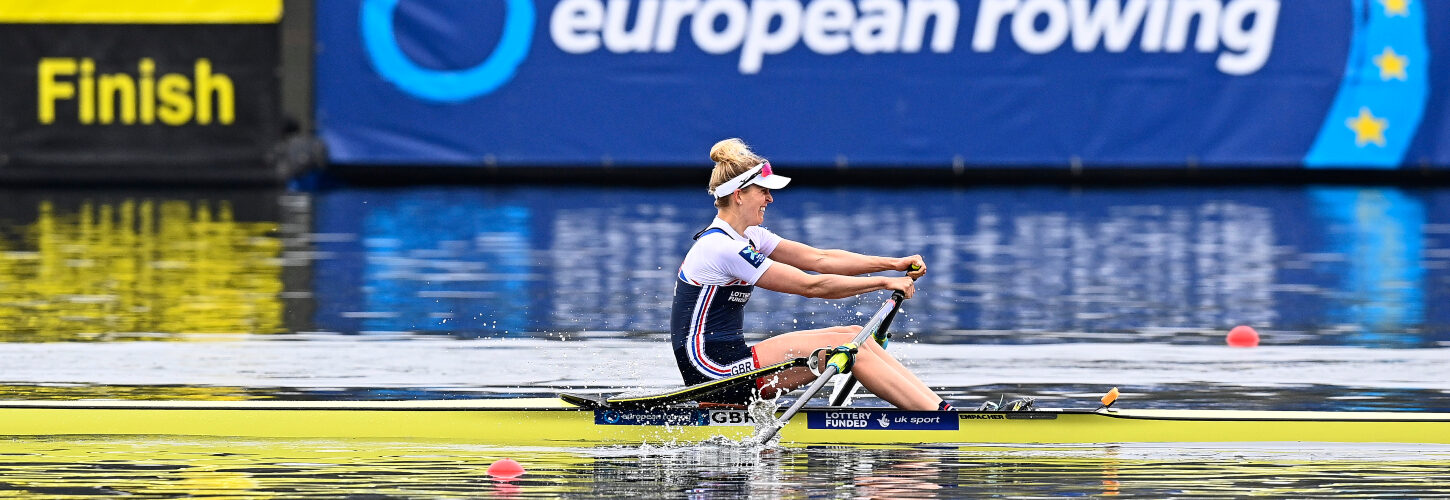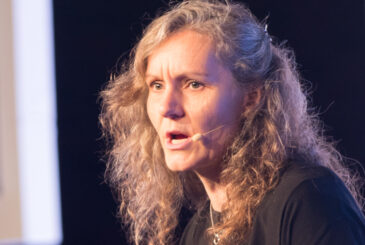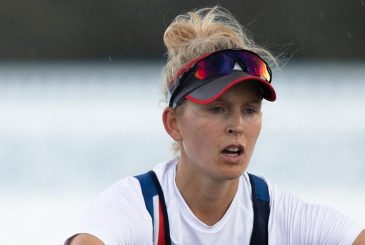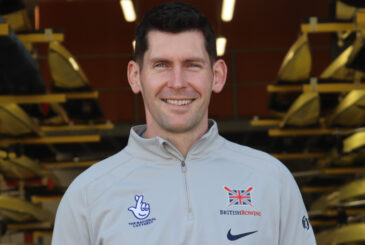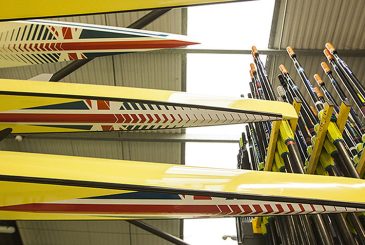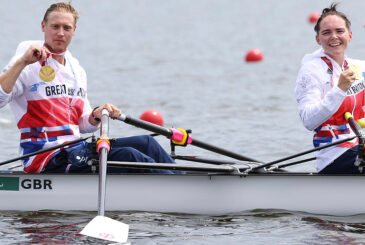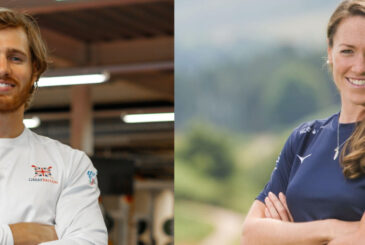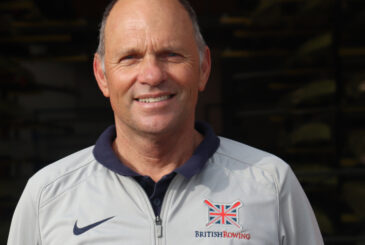Preparing for her third Olympic Games, Vicky Thornley has her eyes on becoming Britain’s first female medallist in the single scull, establishing a legacy in that boat for the future. Only then, she tells Martin Gough, will she start thinking about what happens next in life
Vicky Thornley was one of a new breed when she came into rowing. As one of the early members of the World Class Start programme, she took up the sport 14 years ago knowing she had the potential to win an Olympic medal.
Now she hopes to break new ground by becoming the first British woman to win an Olympic medal in the single scull, an event in which Great Britain has not even fielded an entry the last 21 years.
From Olympic champions Harry Blackstaffe, Wally Kinnear and Jack Beresford at the start of the last century to bronze medallist Alan Campbell in 2012, GB has a history of making the podium in the men’s single sculls but only twice has a British woman appeared on her own in an Olympic regatta.
Thornley, who has an Olympic silver in the double scull from Rio already in her collection, wants to change that, looking back to her first days in the sport when she learnt to scull in Bath.
“The first boat I ever went in was a single scull,” she says. “That was the way we learnt our skills, which meant you ended up falling in a lot. I’ve always felt at home in the single, whereas some people do it because they have to.
“After Rio I thought, if I want to go back, what’s my passion project? The only thing I was passionate about doing for another four years was the single.
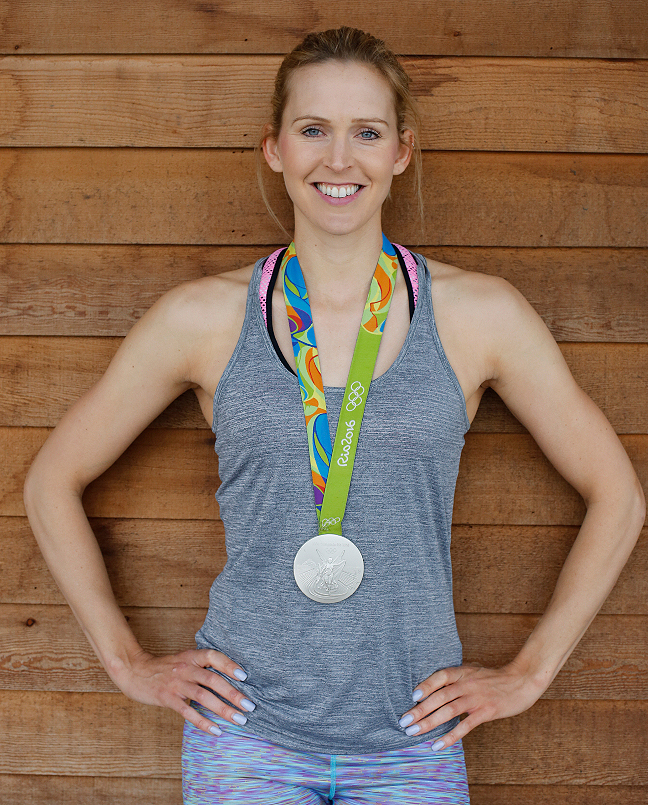
“I won a medal in Rio and I didn’t carry on for four [now five] years to do worse than that. My dream has always been to race the single at the Olympics. That’s my big dream and I want to be on that podium.”
Guin Batten raced the single scull at the Atlanta Olympics, finishing fifth overall, and Alison Mowbray was fourth in the B-final in Sydney four years later. Both had successful careers in crew boats ahead of them.
Nearly a decade on, Dame Katherine Grainger – Thornley’s future doubles partner – won a world championship medal in the single, but readily admitted she wasn’t fond of an event without crew-mates.
“It is a brutal event: when it’s not going right it’s the loneliest place to be but when it goes right it’s amazing”
Even before Olympic selection is confirmed in June, though, Thornley has made a big impact in the boat class, including two world championship appearances in the run-up to Rio, a world silver in 2017 then confirming an Olympic place in Tokyo by finishing fourth at the 2019 Worlds. And of course a silver at the recent Europeans.
“I hope the fact I’ve done it for five years inspires some other female British athletes to take on the single afterwards and think that Britain has had some good single scullers and that’s something we can keep going with,” she says.
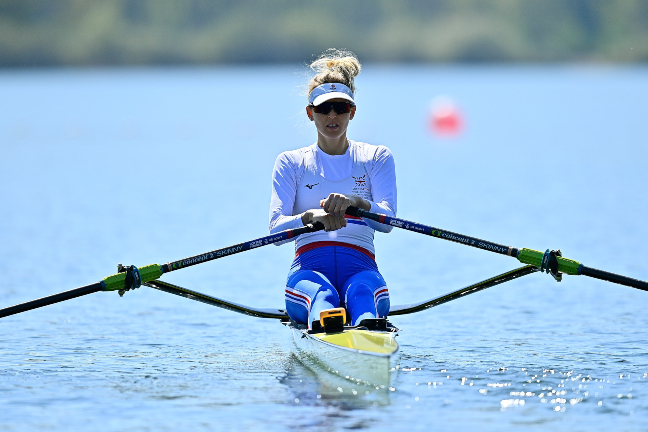
“It is a brutal event. When it’s not going right, it’s the loneliest place to be, but when it goes right it’s amazing. It’s not for everybody, but I hope more people will think it’s something that can be done.”
The absence of crewmates puts the onus on the individual like no other boat, putting more emphasis on the work of Australian coach Paul Reedy too.
“You have to be more accepting of the tough times lasting a bit longer and it’s got to be all you to get you out of those tough times,” Thornley admits.
“Paul has a part to play in that and in the single that relationship between coach and athlete is more important. There’s got to be a lot of trust and honesty because he is my crewmate as well as my coach.
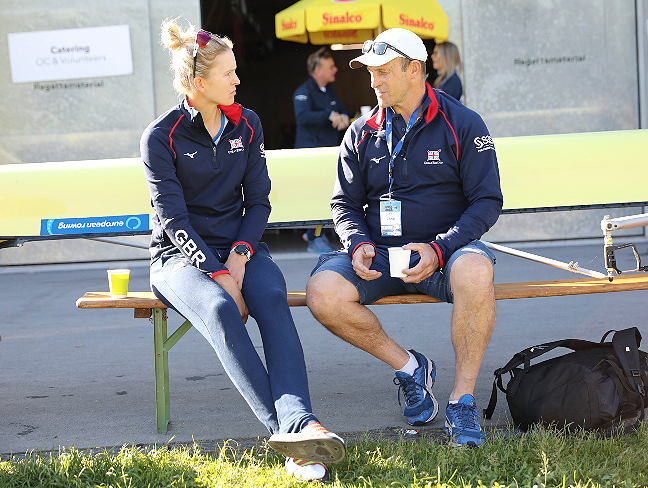
“I’m pretty hot-headed at times and he’s the complete opposite. He calms me down when otherwise I’d be running around.”
The 33-year-old admits Tokyo will be her third and final Olympic Games, ending a career that included a fifth-place finish in the eight at London 2012 before teaming up with Grainger for a memorable silver medal after a difficult summer.
Thornley was forced to take the end of the 2018 season off after she was diagnosed as having over-trained, coming out of the experience with more vital lessons.
“My experience in the eight in London was really important for my development. I was really disappointed with the result, but I rowed with so many amazing athletes in that period,” she says.
“I had a couple of years in the single at the beginning of the Rio Olympiad then in racing with Katherine over those two years I learned loads as well.
“All that groundwork has been fundamental to these five years in the single. If I hadn’t done them, I wouldn’t be the athlete I am today.”
“The team is in a better place than I thought it might have been and that’s really exciting”
The last year has not been without incident either. Having sworn not to ride back on the road during Olympic year, Thornley reneged on that when the Games were postponed because of the COVID pandemic, only to fracture her elbow after a collision with a van near her home in Henley.
Her “dream scenario” of finishing the 2020 Olympics then marrying her fiancé Rick Egington – an Olympic medallist in the men’s eight in 2008 and 2012 – in the south of France six weeks later took another hit because of COVID-enforced travel restrictions.
The couple married in front of family at Henley registry office, then went for lunch at Leander Club, where both are former captains. Thornley’s dress is up for sale, having never been worn, although there can’t be that many brides measuring six foot four inches tall currently looking for a bargain.
Her parents Andrew and Gina normally travel to every regatta but will be denied a trip to Tokyo this summer.
“They’re my biggest supporters, so they’re gutted not to be coming but they’ve saved a lot of money, so we can go on holiday together somewhere that doesn’t involve rowing afterwards instead,” she says.
“I’ve been to two Olympics, so I know what a real Olympics is like. It’s going to be tougher for the guys who have not been to a Games before.”
Thornley started her third Olympic summer with a silver medal behind Russian Hanna Prakhatsen at the European Championships in Varese in April and there is just one more international regatta, the World Cup in Lucerne later this month, before the Olympics in July.
Ireland’s world champion Sanita Puspure and five-times world medallist Emma Twigg of New Zealand are among those yet to put in an appearance so far this year.
“I was happy I executed what I set out to do but just not happy with the margin that the Russian put into me, but I’m not going to get fixated on one person,” says Thornley. “It’s about building through the season and being at my fastest in Tokyo.”
“The first part of the season is about the middle of the race and getting good pace there. Then we start to build the ends of the race. It’s about holding your nerve and making sure you’re doing that in the right way, so you’re at your fastest in July.”
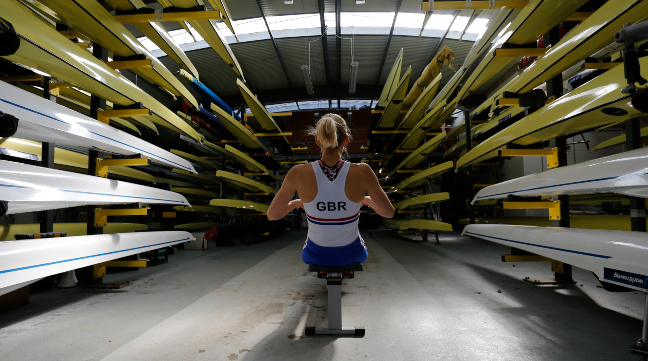
Despite Helen Glover’s return this season, Thornley is one of just four Olympians in the GB women’s squad going into this year’s Games.
She has been impressed by the work put in by her young squad-mates going into the start of the season but admits the performance at the European Championships in April, where Thornley’s silver was one of three for GB’s woman, was a pleasant surprise.
“We finished first in Rio in the medal table, but these Euros was the first time we’ve been top of a medal table since,” she says.
“The team is in a better place than I thought it might have been and that’s really exciting. We’re a very different team than before Rio, but it’s difficult to compare because the COVID situation has changed quite a lot. It’s been great to have an extra year for this team because it’s young.
“I’m quite excited at how we have started the year and if we get it right there could be some really good results at the end of it.”
What will she do after her rowing career comes to a close? She is a qualified personal trainer and is currently completing a coaching and mentoring course.
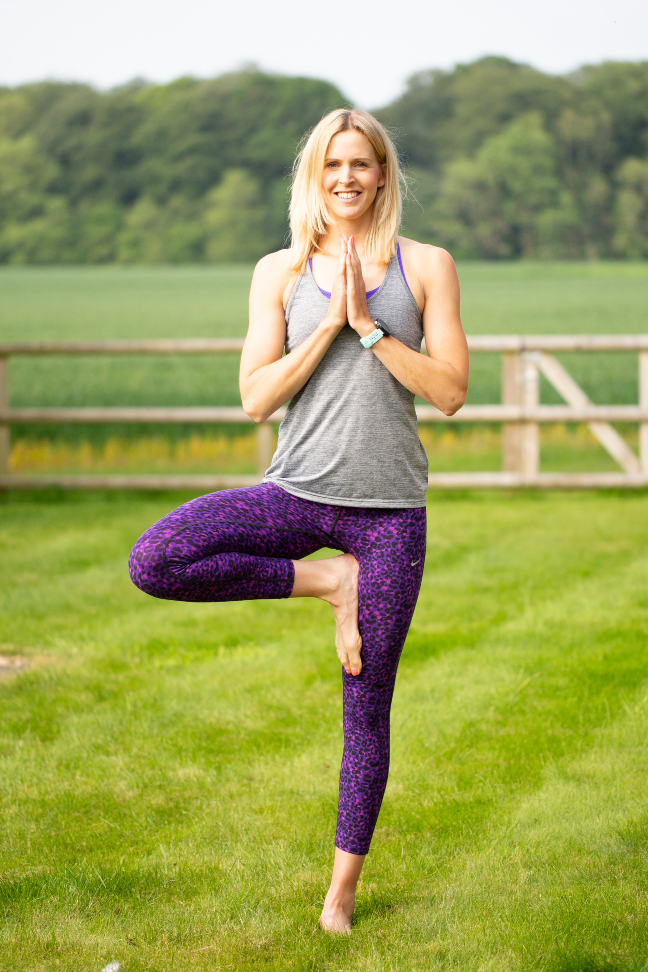
“I’m in awe of people who do PhDs and degrees alongside rowing,” she says. “I’ve always felt rowing is for a finite amount of time and I want to give my complete energy to it because once it’s over you can’t go back to it.
“I’m very interested in health and wellbeing and I think it will be around there that I settle into. A lot of rowers seem to go into one career. I don’t see myself going into one particular industry.
“I might have a few different things, but I don’t know yet and I think until the Games are over and I start talking to different people, it’s hard to know exactly.”
Read more about Vicky Thornley here.
Photos: Naomi Baker, Getty Images and Nick Middleton


